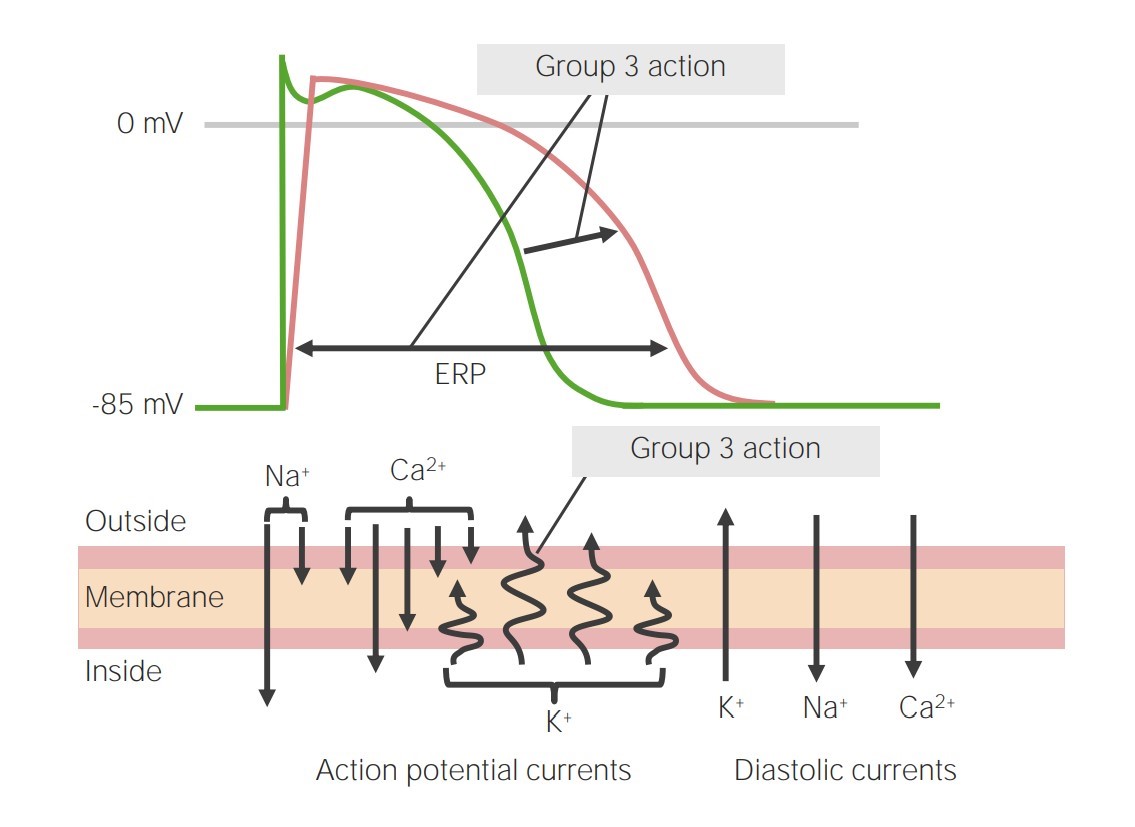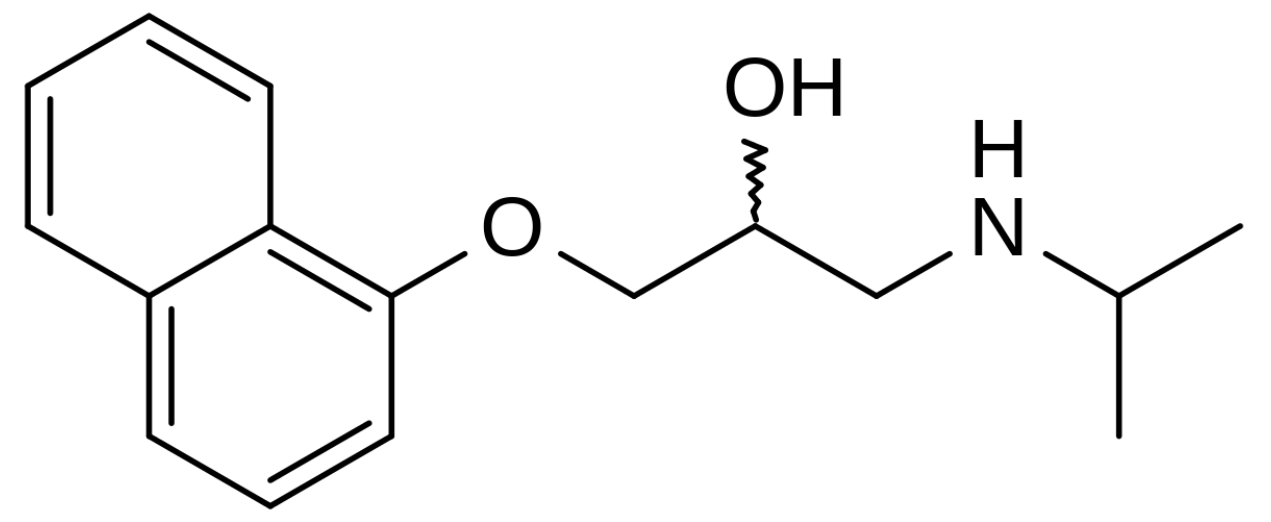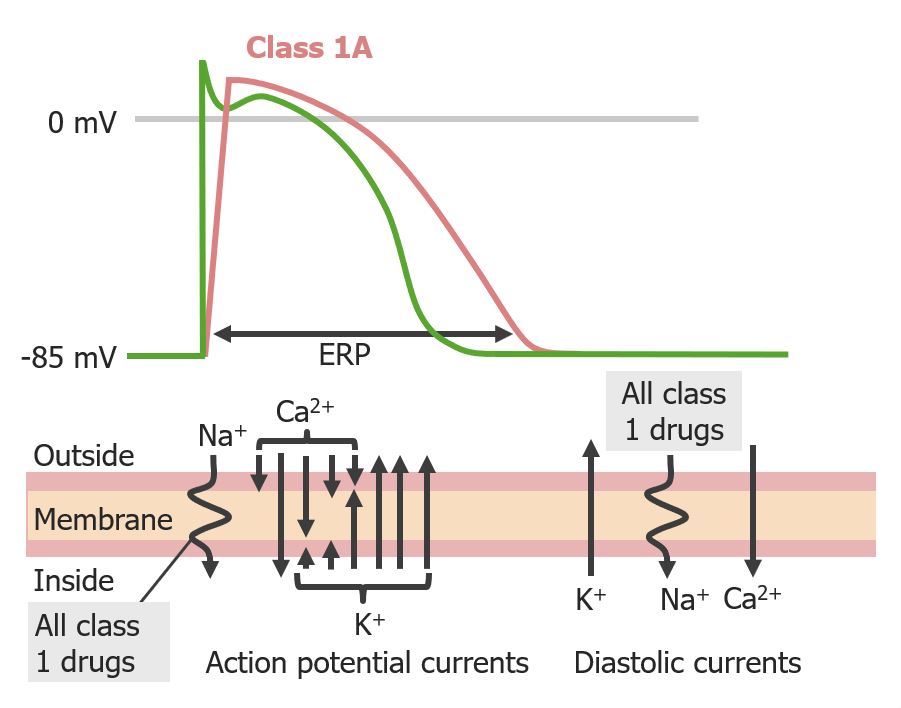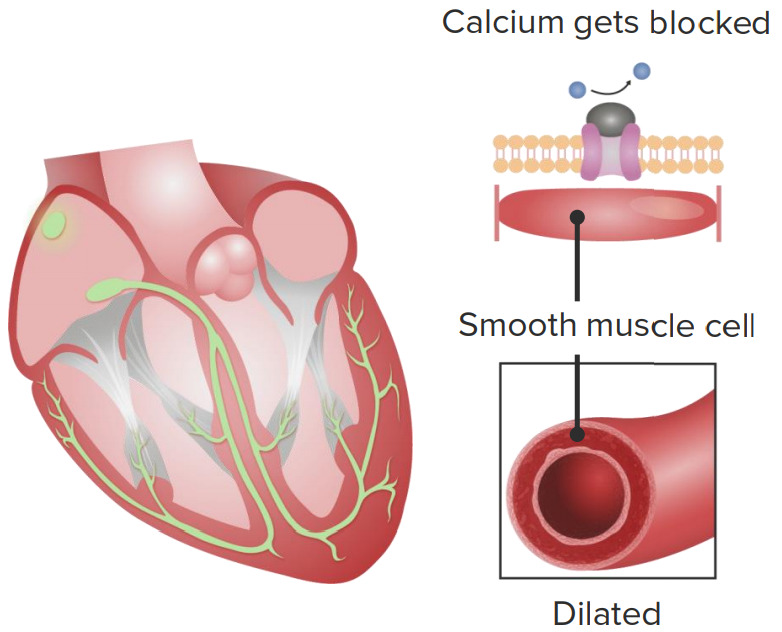Playlist
Show Playlist
Hide Playlist
Questions – Antiarrhythmic Drugs
-
Slides Questions Antiarrhythmic Drugs.pdf
-
Reference List Pharmacology.pdf
-
Download Lecture Overview
00:01 Okay, let's do some questions. The following medication will not affect the sodium channel currents in the heart. 00:09 A, lidocaine. B, amiodarone. C, amlodipine. D, flecainide and E, procainamide. Good for you. You chose the calcium channel blocker. So if you look at lidocaine and flecainide, these are class I drugs. Amiodarone is a class III drug and procainamide is also a class I drug. All of these drugs will work on sodium channel. Amiodarone is more complex because it works on sodium, potassium and calcium channels. Question 2. The following medications have increased toxicity in the presence of excess potassium except, procainamide, flecainide, digoxin, lidocaine, and mexiletine, which one? Good. So digoxin is hard to remember but let's just keep in mind that digoxin has increased toxicity in the presence of low potassium. Let's read the answer together. All class I antiarrhythmics have increased toxicity in the presence of excess potassium. Digoxin may have increased toxicity in the presence of decreased potassium. I guarantee you this is gonna be a question on your exam. Let's move on to the next question. A patient presents to the emergency room with nausea, confusion, and a prolonged QRS duration on the ECG after being on procainamide for two weeks. You suspect procainamide toxicity. 01:49 What's the treatment? Is it A, lactulose. B, spironolactone. C, verapamil. D, sodium lactate or E, lactobacillus. 02:06 Sodium lactate. Now, I want you to pay attention to this question because really, you know lactobacillus is a bacteria and sometimes the examiners will throw a little treat in there for you to try and confuse you but actually in a way they are kind of helping you. When you see an absolutely crazy answer like that you know that the answer probably rhymes with or is similar to the crazy answer. Let's do another question. A patient is in the intensive care unit. 02:38 This is his rhythm strip. I'll give you a minute to have a look at it. What is the first line treatment of this rhythm problem? Is it amiodarone, magnesium, potassium, ibuprofen or mexiletine? Good job, magnesium. That was Torsade de Pointes. Torsade de Pointes is almost like taking a ventricular tachycardia and taking the paper and twisting it around a point. And Torsade de Pointes actually means twist around a point. 03:18 Think of the rhythm as being a three-dimensional rhythm. So in order to take this two-dimensional strip and represent it as a three-dimensional corkscrew kind of rhythm problem in the heart, our two-dimensional paper can only represent it as a wide and then a narrow and then as a wide rhythm strip. Torsade de Pointes is very hard to treat but it does respond to magnesium. Well that's it for our questions. I hope you enjoyed our course. Good luck on your exam.
About the Lecture
The lecture Questions – Antiarrhythmic Drugs by Pravin Shukle, MD is from the course Cardiovascular Pharmacology. It contains the following chapters:
- Question 1: Antiarrhythmics Drugs
- Question 2: Antiarrhythmics Drugs
- Question 3: Antiarrhythmics Drugs
- Question 4: Antiarrhythmics Drugs
Included Quiz Questions
Which medication will have increased toxicity in the presence of hypokalemia?
- Digoxin
- Quinidine
- Lidocaine
- Mexiletine
- Propafenone
Which statement is most accurate?
- Amiodarone affects sodium, potassium, and calcium channels.
- High potassium levels increase the risk of digoxin toxicity.
- High sodium levels increase the risk of lidocaine toxicity.
- Procainamide toxicity should be treated with verapamil.
- Diltiazem has stronger chronotropic effects than verapamil.
Customer reviews
5,0 of 5 stars
| 5 Stars |
|
2 |
| 4 Stars |
|
0 |
| 3 Stars |
|
0 |
| 2 Stars |
|
0 |
| 1 Star |
|
0 |
Reccomend it it s very helpful i joyed warching it thank you very much
1 customer review without text
1 user review without text







